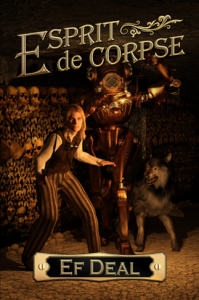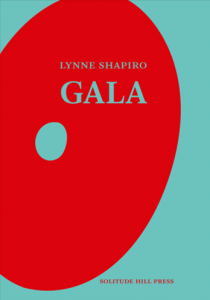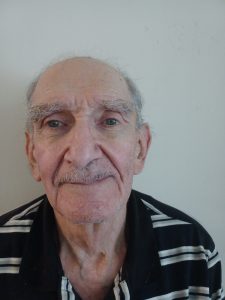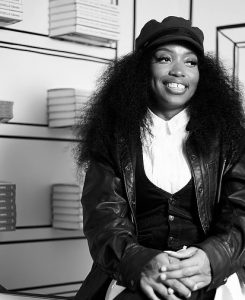
The car ride was a quiet one. In the front sat the Realtor, sneaking looks back at Miles and his mother. Miles had seen those looks before; the Realtor was wondering how the pert young woman could be the mother of an 11-year-old boy. When the Realtor had called earlier that day, he insisted he would pick the pair up from their current motel residence, give them a ride—really it was no issue—and he would treat the confidentiality of their case as a personal crusade. They had been through enough. His lips were sealed, “No matter what.”
Miles thought it was funny the Realtor said the part about the lips. He couldn’t find a single lip on the man’s pocked face.
Now, thirty silent minutes later, they drove. Outside, the sky offered nothing but monotonous gray. The earth seemed tired. It had only the mud and slush to show for a month’s snow and rain.
“This house is one of two that are handicapped accessible,” the Realtor spoke up. Just by the way he said it, Miles knew the Realtor had been sitting on that nugget of information for a long time.
Miles could sense what was coming next.
“That’s nice, but we don’t necessarily need a house that’s handicapped accessible.”
“Oh,” the Realtor cleared his throat. “I just figured—”
The Realtor glanced to the crutches leaning between Miles and his mother, adorned with blue medical tape, miscellaneous stickers, and towel-wrapped handles.
“No need to figure anything.” Miles’ mother spoke quickly, each word annunciated with months of practice. She was smiling, but her tone held a bite. Miles closed his eyes and leaned his head against the cold, damp window. He hoped this house would be different than the last ones. His mother had found something inexplicably wrong with each.
They arrived at the next house, a white-shingled ranch, it was long and flat, and had no other homes around it. Miles twisted himself a bit, looking through the car’s salt-crusted rearview window. There really were no houses around it. The emptiness of its surroundings was disheartening at best, but he shook it off. With a little spark he realized something: it was big enough for him to have his own room.
Still peering from the car, Miles noticed the thick rows of trees flanking each side of the home, still, quiet, and unmoving. He couldn’t see the backyard, or, frankly, anything at all behind the house. He figured they must be atop a hill; it was as if the earth disappeared behind the house. He watched his mother’s gaze fall to the small ramp leading to the front door. Still in the back seat, she turned to Miles and tightened his scarf.
“Are you okay?” she whispered.
Miles nodded and reached for his crutches. The Realtor was already out of the car and making his way to the front door—red with two perfectly square windows on both sides. In an instant, his mother appeared at his door, pursed her lips, and helped him get to his feet.
“Don’t worry, Bun.” She nodded her head toward the crutches. “We’ll be done with these soon.”
Miles smiled, though he never understood why his mother said things like that. He couldn’t remember a time without the crutches and didn’t mind them.
Inside the house was nothing to report. It was empty, and Miles overheard the Realtor mention something about “early 2000’s.” It felt like a box and smelled of citrus air freshener and something akin to cigarettes. Miles had faint memories of houses like it, but he didn’t let his mind dwell. He separated himself from his mother and the Realtor.
Without furniture, sounds echoed in the house. Miles examined the rooms, popping each flimsy door open and peeking in. Each room nearly identical to the last. He was on the cusp of boredom. Each light in each room, a yellow-hued dome with dead bugs piled up at the bottom, cast a dim warning: the windows, a single small one in each room he visited, had been plastered over—or somehow sealed over— on the outside.
In the biggest room, which Miles assumed would be his mother’s, was a door to the backyard. It resisted as he wiggled the doorknob.
Suddenly: a rumbling. The house lurched, the sound almost guttural, yet parts of it mimicked a screech. It was big and it was close. Miles’ reaction to the sound was physical, his hands tightened around the handles of his crutches, and his face warmed with a flush of blood. It was so close he could hear the rhythmic clacks, the sound of metal on metal. Then, finally, the abrupt sound of an exhausted horn shifting its tone as the thing hurled by. A train. Just by the sheer weight of the sound, Miles knew it was a freight train, probably a B36-7 locomotive, four axles. This house quickly became the most appealing on the docket of homes they’d visited. He rushed to tell his mother; the clacks of his crutches silenced by the train’s roar.
Miles’ mother and the Realtor were standing in the kitchen, seemingly unbothered by the sounds that shook the house. He was looking at his phone and she was opening and closing the gently worn cabinets.
“Do you hear that?” Miles shouted above the noise, poised in the doorway.
Miles’ mother and the Realtor stopped to look at him. The Realtor’s mouth flicked to an anxious smile, and Miles’ mother went to the Realtor’s side. She touched the Realtor’s shoulder just as he began to say something. Miles’ mother nodded once, locked eyes with the Realtor for an intense, fleeting moment, then returned to her cabinet prodding.
Miles stood in rapture for as long as it took the train to pass. He wished it were longer, but after a few minutes it was gone.
“I…” Miles struggled for the right words. “I haven’t heard a B36-7 in a long time.”
“Crazy,” she paused. “That’s exciting.”
The Realtor said nothing. His eyes slid over to Miles’ mother, now smiling, large and forced.
The house was cheap, Miles was sure. You could hear everything from the outside, there were drafts in places where he thought wind wouldn’t be able to reach, and the fake-out windows in the back still unsettled him. But he could make it work now that he knew about the tracks. It also sure beat moving around and sleeping in hotels that smelled like the breath of a hundred people.
After more examining and poking, the three returned to the Realtor’s car. This time Miles’ mother sat in the front, an uncomfortable change Miles would soon ignore.
“You like this house, Bun?” she peered over her shoulder, and reached behind to give Miles’ knee a quick pat.
Miles didn’t want to lie. “I like how close it is to the train tracks.”
And that was that.
*
It was only their fifth night at the house and the dreams already descended upon Miles. They weren’t new to him. In an act of quiet, blind hope Miles assumed the change of scenery, “positive thinking” (as his mother would say), or some force of sheer willpower would keep them at bay. The dream was always the same, it came with a paralyzing familiarity.
It started with a small, nondescript house. Perhaps it changed each dream, though Miles wasn’t entirely sure. There was a new man in the house, always the same man, though Miles could never place him. A friend of his mother’s, an uncle, sometimes even a dad. The man brought with him a very young boy. Miles and the Boy politely avoided one another, silently accepted they would be in each other’s lives. Boy was three or four, he had a square face and large, wide-set eyes. Miles’ mother and the Man made a habit of forcing Miles and the Boy outside in the afternoons. This house didn’t have a television, nor did it offer any form of entertainment besides the great outdoors, so Miles and the Boy were content to run outside. (In the dream Miles had no crutches). They would busy themselves with a rock or potato bug until his mother and the Man let them back inside.
The beginnings of these dreams were always peaceful. They took place somewhere warm, nearly tropical; a world so real, almost precious, Miles didn’t dare tell anyone about them. Day in and day out: Miles, the Boy, outside, Mother and the Man with his forgettable and everchanging face, innocent, numbing, fun.
Then, as it always did, the chaos descended quickly. Shouts, sounds—rasping, animalistic, nothing that sounded like his mother or even the Man, emanated from all around. These noises were high-pitched, whining, evolving to shrieks. Either something was in the house with Miles’ mom and the Man, or something was outside and wanted to harm Miles and the Boy. In these dreams Miles was never sure which it was. He would leave the Boy where he sat on the grass, instruct the boy to remain where he was, and run to the door. The door would be locked. Of course. Sometimes Miles realized at this point that it was just a dream, though that rarely changed its outcome despite Miles’ attempts at waking.
The sound, now deafening, would radiate through the closed door, through the air around him, knocking Miles over, pulsing through his body. The poison of the sound strapped to his muscles, oozed out his ears, filled his nose with an acrid sweetness. Miles was plastered to the grass, his back seizing up, his breaths hurried and painful. Paralyzed, a single thought would emerge. The Boy. With a creaking strain, Miles twisted his head, finally able to catch the Boy in his peripheral vision.
It would be too late. It was always too late. There lay the Boy, dead, bleeding, his body gorged and destroyed by something Miles had missed. Maybe the thing in the house, or had it been outside? had escaped. Hopefully it had avoided his mother and the Man, as it had already feasted on the Boy. Then, as if pulled through a small tunnel, Miles saw the scene disappear before him, slowly at first, then intensifying to a jolt which left him breathless.
He sat upright in his bed, panting. Thankfully awake. Hot tears peppering his blotchy cheeks. The room was bare save for a new star-shaped nightlight. It was comforting enough. Miles squeezed his eyes closed, silently pleading for his mother to come in. Perhaps some intrinsic connection she shared with her only child would wake her and draw her into his room. But in an attempt not to stress her further, he didn’t dare call for her. The move had made her jumpy.
There he sat, perfectly still. He glanced at the crutches leaning next to his bed, longer and spindlier than he remembered.
He tried to slow his heart down, not letting the unknown terrors that emerge at night get to him. He was 11 after all. You’re too old for this, he sheepishly assured himself.
A moment of mercy. The rumbling of the 02:45. Miles wasn’t sure what kind of train it was just yet, but he knew it passed nightly on the tracks behind the new house. Though he hadn’t seen the tracks themselves yet, every time he brought them up his mother would turn him down, politely at first, and soon with a brusqueness that told him he only had a limited amount of asks left. He would need her assistance to maneuver out the front door and around the thick line of trees to head toward the backside of the house. Or, even easier, through the apparently permanently locked door in her room.
The train let out a low honk and Miles felt something unfurl in his chest. He took a deep breath. He loved night trains. Whatever was happening now, as he sat in bed immobile tonight, somewhere out there, someone was awake, doing their job, radioing with people, dutifully moving things to where they were meant to be. He could almost count down to the second that the tone shifted with the horn, the locomotive no longer barreling toward the house, but now ushering its freight past. He had learned this was called the Doppler Effect. The sound of an object as one thing when it heads toward you, another as it moves past.
Miles lay back down, he could see it all in his mind’s eye: the machine cutting through the night, the robust, quick intentional rotations of the wheels, and Miles’ eyelids began to close. His guard was down.
For a brief moment something slipped out, a memory maybe, of the Boy yelling Miles’ name.
*
Miles and his mother sat on the sofa across from the Doctor. The Doctor said to call him by his first name, and it was news to Miles that you were allowed to call adults anything but mister, missus, or by their career (doctor). The Doctor and his mother chortled at Miles’ realization. Then they fell quiet.
The Doctor was the most interesting man Miles had ever seen. He was old, donned a shaved head, well-trimmed gray beard, and a permanent tan on his skin, the kind of tan that shows he had spent ample time in the sun, and it decided to stick around years later.
“Miles, your mom told me you and Dr. Persimmon really hit it off these past few months. I’m here to step in while she’s on maternity leave.” The Doctor spoke as if Miles should know what he was saying. Miles peeked at his mother, who didn’t take her eyes off the Doctor.
“I want to hear from you,” the Doctor continued on. “What are some things you want to talk about? How are things?”
Miles pretended to ponder—what did he want to talk about? He was stuck on Persimmon, though in truth, he couldn’t place the name. Persimmon. All at once every topic of conversation drained from his head.
“He’s only recently become verbal again,” Miles’ mother said calmly. The Doctor raised a weathered hand at her, keeping his attention on Miles.
“I know you and Dr. Persimmon were really making some great progress, and I’m sorry about this change, but I just want to let you know that I have a different way of approaching things. Can I tell you how I approach things?”
Miles nodded. Who is Doctor Persimmon?
“Great,” the Doctor looked to Miles’ mother. “If you could, usually I like to do my first session with the kids alone.”
A cold pang of fear. Miles’ hand grasped onto his mother’s denim-clad leg.
“I think I ought to stay.” Miles recognized the tone as the one she used on the Realtor.
The Doctor exhaled. “Alright.” He wrote something down on a clipboard Miles hadn’t even noticed.
“Okay Miles,” the Doctor raised his eyebrows in a quick up-down. “Tell me about the past few days. What goes on in an average eleven-year-old boy’s life?”
Miles realized he was still gripping his mother’s leg and released, putting his hands flat on his slender legs as professionally as possible.
“We got a new house.” Miles’ voice was a dry whisper. Unexpected. In his head his voice was louder, crisper.
“That’s super cool,” Miles had never heard an old man say ‘super cool’ before. “What’s your favorite part of it?”
Miles shrugged. The Doctor wrote something on the clipboard.
“How is school”
“He’s homeschooled for now,” Miles’ mother interrupted. The Doctor put down his pen and shot her a glance.
“Sorry.”
“Going back to the new—”
“Actually,” Miles’ didn’t mean to interrupt. The Doctor smiled and gave him a nod.
“What does ‘maternity’ mean?” The question had been pestering Miles. Next to who Dr. Fruit-lady was.
“Oh, like with Dr. Persimmon.” The Doctor didn’t miss a beat. “It means she’s pregnant. Going to have a baby.”
Miles absorbed this.
“But she should be back with our practice in a few months, so don’t worry, you’ll see her soon enough.
More writing by this new doctor. With a small slap he put his pen down.
“Is it okay if I do some quick-round questions with you, Miles?”
“Sure.”
“Favorite subject when you’re at home or in school?”
“Uh, math.”
“Dr. Persimmon wrote here you like trains a lot. Favorite train?”
“C44-9W… it’s called the Dash 9.”
More writing.
“With Dr. Persimmon in mind, do you like babies, Miles?”
Weird question. “I think so” Miles’ voice was quieter than he wanted. Speak up, an attempt at self-encouragement.
“I haven’t spent much time with babies, but I like the ones I see on TV.”
No one said anything for longer than Miles would’ve liked. Was he supposed to not like babies? Now was definitely not the right time to ask who Dr. Persimmon was, and why he should be informed that she’s pregnant.
Miles’ mother shifted to face Miles and lowered her voice. “Miles, it’s okay to just tell the truth in there. I know it can be really hard and scary, it’s hard and scary for me too, but this is the time to just talk about what’s on your mind.” She grinned at him and returned to facing the Doctor.
“We can go back to trains. Is that okay with you?” the Doctor lowered his voice.
“Yes.”
“Have you ever been inside a train?”
“I… I haven’t.” Say more, Miles, come on, Miles thought to himself, tensing. “I figured they’d be hard to get in and out of with my crutches.”
The Doctor hummed as he frantically wrote something else down. Is he writing things about me? Miles felt hot.
“And you’ve had those crutches for…” the Doctor trailed off. Miles didn’t know the answer. His mother stepped in.
“About seven months.”
Seven months? Miles glanced at his mother.
“Interesting.” More writing.
“And… you…” the Doctor spoke slowly, writing as he talked. Finally, “You didn’t have these crutches when you were down in Florida? Just seven months ago and consistently ever since then?”
Florida. Miles bit his lip. Florida?
“No, he didn’t have them in Florida. Just toward the end.” Miles’ mother’s voice had a sudden acidity to it. She turned to Miles and then to the Doctor. A small pebble of tension dropped in Miles’ stomach. Something was off with his mother, a vein of rage emerged from her forehead. A new emotion within her had been switched on.
Her voice went up an octave. “You said you wouldn’t bring this up. Not in the consultation.”
She reached over and grabbed Miles’ crutches, leaning on the wall beside her, then shoved them at her son. This was a clear cue to get ready to leave. He prodded the crutches under his armpits as his mother increasingly fumed.
She continued. “And Dr. Persimmon made it very clear throughout our work these past few months that we are not to mention Florida, not to mention—”
“I understand, but I’m just trying to take a different approach.” The Doctor kept his voice calm, but Miles could tell he was not expecting such a rapid turn of events.
“We can discuss something else.” His voice was firm, but Miles’ mother was already up and at the door. Her coat and Miles’ coat both folded over her arm. Miles thumped toward his mother. He felt bad for this doctor, and something in his chest longed to stay, wanted to see him again. The Doctor held Miles’ eyes as long as he could. They did not say goodbye to the secretary on the way out.
*
Miles’ mom did not turn on the radio on the drive back from the Doctor’s. Never a good sign. An attempt at distraction, Miles looked around him at the worn leather interior. The seats looked like they were dry skin, cracking. He wasn’t sure whose car it was they were in. His mother had a lot of friends, maybe she was borrowing this one from them.
“What the hell,” she kept saying over and over. Miles stayed quiet.
“Miles.” His name was an order.
“Yeah?”
“Did you like that doctor?”
Miles paused. “Yeah.”
She let out a low hiss of air, like a steam engine. “Really?”
Miles didn’t answer.
“I guess I’m just so used to Dr. Persimmon. God, she was great. She was just so… easy to be around, you know?”
Miles did not know.
“Well. Sorry, Miles. I didn’t know you liked him.”
They turned onto their street. Their new street.
“I bet he’ll agree to see us again,” she was no longer talking with Miles.
The car slowed, and they pulled into their driveway. Miles figured it was time to ask, better now than never. Panicked, he blurted out, “Can we go to the back of the house? Maybe go see the tracks?”
His mother turned off the car and reached for his crutches in the back. “Not right now, Bun. I have to go in and make an apology phone call. I need to mentally prepare to grovel.” She made a pretend gagging sound. Miles didn’t laugh.
She went around and opened Miles’ door, helping him out of the car. He looked over her shoulder to the long line of trees. They seemed thicker than ever. Maybe he could try and venture around there while his mother was on the phone. His mother noticed his staring.
“You really want to go to the yard?”
“I do.”
She paused, her eyes, gray and intense, studied Miles for a moment longer than he would’ve liked.
“Listen, we can go, just don’t go back there without me, okay? The ground is…” she looked for the right word. “Uneven. Tricky to walk on, so I really want to be with you when we go.”
“Can’t I just cut through the door in your bedroom?” Miles felt energized by this newfound persistence. She sucked in one of her cheeks, leaving her face hollow for a moment. For the first time Miles saw his mother as old, tired. Something was different about her. The skin under her eyes suddenly seemed thin and taut like a bat’s wing. She stood up.
“Miles, I’m sorry but no. We can go later, but I have to do some things.” Miles didn’t leave the car.
His mother crouched back down, putting her face close to Miles; and locking eyes with him.
“Look at me,” her voice was quiet. Miles looked.
“Do not go alone.”
*
“Did you know,” the Man said, chewing with his mouth open. Miles didn’t dare say anything. “That if you lie flat under a train, it’ll just go right over you?”
Miles, surprising himself, let out a laugh. It was the single most absurd thing he had ever heard. the Man grinned, “I knew that’d get a rise out of you.”
Miles’ mother, spoon feeding the Boy at a worn highchair across the table, let out a playful tisk.
Miles went back to quietly eating. The night was hot, summer was quickly upon them, and the windows, old but screened in, let in a damp breeze. He could tell the Man about how, even if you miraculously managed to get past the protective locomotive cab protector, built like a plow in the front, there are so many hoses and wires dangling under a train, it could snag you and drive you for miles and miles. Snag you and drag you. Clever. He smiled.
But the Man was always saying silly things, Miles knew this wasn’t a real conversation.
“Can you feed him? I’m going to head out for a sec,” Miles’ mother said to the Man. She pulled a cigarette out from behind her ear, giving Miles a quick kiss on the top of his head as she passed. The Man picked up where she left off, spooning a pale, sweet-smelling substance into the babbling Boy’s mouth.
“Here comes the train into the station,” he cooed at the boy. Miles could’ve sworn the Man shot him a wink.
*
The Boy had been following Miles around for a few weeks now. And Miles was sick of it. He wasn’t sure when or how the idea occurred to him.
The house was decaying and old. Its paint, pastel pink and soft, flaked off the side of the house like dead skin. The dullness of the house offered little reprieve to Miles’ and the Boy’s boredom as they spent their afternoons outside. Miles, however, found the one thing that could make the days bearable, borderline enjoyable: the train tracks.
Just less than a quarter of a mile away, past the extension of the house’s grassy yard, then through a brief ankle-deep marsh, and guarded by a chain-link fence with barbed wire atop, lay the tracks. Then, through a small hole in the fence, Miles could easily access the tracks.
The trains that came by were not on any discernable schedule, but they did come. Usually GP40-2s with three locomotives for the incredibly heavy cargoes. On the sides in bright, warning letters, advertised Florida East Coast. Sometimes—very rarely—they would let out a quick toot at Miles as he stood by the fence (even at a very young age he knew the dangers of these machines and would always scurry to the safe side of the fence as a train approached).
Unlike the northeastern trains Miles now was accustomed to, the trains bustled through cityscapes at slow paces. In very small towns, however, the trains rarely slowed. Towns like McIntosh, Florida. Its population was 400, rarely warranting a honk or even a slower pace.
Miles usually went alone, but recently the Boy took interest. Usually, the Boy would just follow him to the marsh and then stop, deterred by the warnings Miles’ mother and the Man spewed about gators or snakes, though neither boy had ever seen one.
Today, however, the Boy followed Miles to the fence. Miles tried to shoo him away, but the Boy was persistent, toddling behind, pleading to stay with Miles.
Miles wriggled through the hole in the fence. The Boy did the same. Wordlessly, they approached the tracks. Miles looked left and right; the Boy looked too. The tracks spanned as far as they could see, perfectly straight.
Miles crouched down and touched the metal beams, one and then the other. They weren’t yet hot. It was only morning.
“Don’t tell them we come out here,” it occurred to Miles to say. His mother and the Man had also told Miles and the Boy to stay in the grassy part of the yard, and never ever go by the fence. Miles doubted they knew about the hole.
The Boy didn’t seem entertained by the tracks. Miles caught him looking through the chain-link fence, past the marsh, through the grass, and to the house.
“We’ll go back soon, I just have to check some things,” Miles put his hands up, implying the boy to stay where he was. Miles headed up the tracks—he had a line of pennies he’d been flattening, left out for a few days now. It was time to collect. On these pennies Miles had managed to sharpie the abbreviated title of the trains as they passed. Miles picked up the small, flattened gems. Miles grimaced, as expected, they were too squished, and the sharpie was illegible. He held the pennies to his nose. Flattened, they smelled brittle, the odor cold somehow; it could be the smell of the steel train wheels. A small win.
He heard a call behind him, the Boy was awkwardly perched on the edge of the railway. Miles shoved the pennies in his jean pockets and scurried to the Boy.
“What happened?” Miles asked, kneeling beside him. The Boy, now crying, yanked at his pudgy leg, his foot wedged beneath the iron of the railway and the gravel that lay beneath the tracks. The more the Boy pulled at his leg, the more space allotted for the gravel to fill in the hold his foot had created. It was unlike anything Miles had ever seen; the gravel seemed to be emerging from the ground, little gray monsters swarming, latching themselves around the flesh of the Boy. The hole filling, filling, filling. The gravel had an unnatural, eager quickness. Miles shivered but forced himself close to the Boy. He knelt down, trying to help the Boy into a new position, but that led to more cries, evolving into shrills. Miles knew better than to actually walk on the tracks. But he forgot to warn the Boy to never walk anywhere near the smooth rails of the tracks, let alone the treacherous center. A stab of guilt—a tangible sickening feeling he could only hope to forget—waved through him. His mother and the Man would be so angry, and they would definitely fix the hole in the fence.
With a single rumble, the guilt turned to fear. Miles and the Boy felt it together and at once. A train. Miles’ attention jerked to the machine approaching in the distance, then to the Boy. The train was not going to slow. Something in Miles knew this.
What had Miles done? The Boy, confused by Miles’ tears, clutched onto the arm iron of the tracks, and attempted to pull himself up. Miles positioned himself behind the Boy and gave him three big tugs. Nothing would move him.
Miles took off. He ran through the marsh, only ankle-deep in this dry weather, but deep enough to suction off his boots. Miles didn’t stop to retrieve them. He didn’t even have it in him to glance around for gators. Finally, he got to the backyard. Grass, hot, scratchy, pulling at him, slowing him down again. The blood pumping through his ears muted the world around him. Should he have stayed with the Boy so the conductor could have a chance at seeing them and slowing? Did the conductor even see the Boy yet? They almost never slowed down here. No real town within three or four hours, just the swamp, the fence, and the lone house.
The door was locked, God, why was the door locked. Miles screamed. He slammed his open palms against the door, his throat tightening on his senseless noises. The rumbling swelled and grew as the train approached.
The Man answered the door first, opening it without urgency. Miles, wordlessly, cried and pointed to the fence. Now Miles’ mother arrived at the door. Her eyes widened. She understood, and said to the Man, “The train!”
This was enough, Miles ran again. Ahead of the adults, through the grass, tugging, through the marsh, sloshing, and finally wriggling through the hole. The adults were close behind, pumping their arms and huffing through the different terrains. The Man would be too big to get through the fence, and the barbs on the top stopped him from scaling it. Though he did try.
But his mother could fit. Miles glanced behind him at the young woman running full speed next to the Man. Through their running they pleaded for Miles to stop.
“Stay away from there! Get away from the tracks!”
But Miles wouldn’t. He ran, and finally he made it to the side of the tracks, a few feet away from the Boy, still stuck, face red from the tears and attempts at pulling himself free. His cries swelled with the presence of adults. Miles’ body stopped him from getting any closer. Miles, stop, a train is coming, his gut pleaded.
His mother was wedging her way through the hole, parts of its rusty spindles tore at her shirt and arms. She pushed through, joining Miles and the Boy. The Man, helpless, shouted from the other side of the fence. The Boy wouldn’t move. Miles yelled. Maybe if he was loud at the Boy, he’d roll away from the track somehow, he’d manage to unlatch himself. Miles knew it took a train that size, with that much freight, at least a mile to come to a complete stop. An EMD SD70MAC, Miles guessed.
Miles opened his mouth again but all that came was the sound of the locomotive, its horn, the dual-tone wheezing for them to get out of the way, the roar of its clacks close, and, despite the imploring screeches of the brakes, not slowing in their beats. The wheels chirped like loud, angry birds at this sudden change of pace. The beast was loud, present, caught off guard. The warning was over now. The train was already there.
Miles lunged forward, through the sound, the shrieks of the wheels felt like they pierced his eyes, his ears, it seemed to even prickle his skin. He didn’t dare look at the front of the train, the face of it marked with its faded, yellow, beady little headlights. It let out final bleats to get them out of the way. Miles wrapped his fingers around the Boy’s arms, pulling as hard as he could; his own limbs burned.
He closed his eyes, any second now. He could feel the heat of the train.
Once he felt the pain in his legs, he had to release his grip. Excruciating, the needles—no, knives— of the sounds finally penetrated through his jeans, through his flesh. Faster than anything he had experienced, the pain of his legs rushed to the rest of his body, and he felt, in a moment, a sickening crunch beneath him.
There were no other sounds but the horn, still atop him, not yet a new tone. Then the breaks, still pleading to stop, to slow. Quickly, the smell of diesel, new and brief, stifled as Miles urgently started breathing through his mouth. Hot air whirled around him, dusty, if he weren’t able to inhale from the sheer pain in his legs he probably would’ve choked.
Unexpectedly, Miles fell backwards. Something had taken him. Grabbed him under the armpits, though he wasn’t sure. He could only feel his legs. He couldn’t focus enough to open his eyes, the sensation of his legs, the sounds—how could he? Miles allowed his head to fall. It was suddenly incredibly heavy, his skull seemed to be pulled down, closer to his legs, his neck gave way and his head bobbed forward.
He was dragged. He tried to piece together what was happening, he was being hauled now, pulled. He managed to open his eyes. In front of him was nothing but long, crimson streaks from where he was carted. They left two parallel lines, like the tracks of a train.
Once they were far enough away, he was laid flat. The sun blinded him, but he didn’t care. There was no time to make sense of anything, the pain stepped in the way, blocking any coherent thought. His mother, in a whirl, appeared above him.
“Miles! Miles, honey, please!” She blocked the sun.
He could not yet speak and very quickly wanted to go to sleep. She knelt and lifted Miles’ head off the gravel surrounding the tracks. They were close to the fence. Far enough from the train, as it began to finally slow.
“Miles, hey, it’s okay,” she was yelling above the noise. What was she doing? She needs to go help the Boy.
There was a large thump beside Miles and his mother. Miles could not turn his head to look, or even to move his eyes to see. He heard his mother say something—loud, urgent—toward the thump.
“Oh, god,” the Man said. It was closer to a wail, but Miles couldn’t imagine the man, or any adult for that matter, being upset enough to wail or cry. The thump must be the man. Did he climb the fence? Miles couldn’t focus on the thought of the man scaling the metal, going over the barbed wire. His thoughts were on his legs.
Miles was now alone; his mother had left his side. The never-ending sun made his eyelids feel not real, translucent, the sun now shining red.
Back to his legs. He could not take deep breaths. It felt as if he had bumped his tailbone on a slide or rock—the pain creating stones in his throat, his lower stomach tightened. Yes, breathing was out of the question.
Alone for as long as he could remember, he didn’t reminisce enough to think that he was lucky. Lucky to live, lucky to not see.
The engineer finally got out of the train, his voice strained, yet his words loud. Miles didn’t remember—really, he didn’t—what was said among the adults, what happened with the Boy.
That’s as far as his mind let him go. And that others remembered this day well made him queasy. This was the biggest difference between him and those around him, and it got bigger each passing day.
EPILOGUE:
After dinner. That’s when Miles would do it.
It wasn’t adding up. He wanted to go to school. He knew it was a new school, but he was tired of being at home. Tired of seeing the Doctor, of being cooped.
Miles and his mother finished their nightly physical therapy, which, apparently, they had been doing for months now. Each night Miles would position himself on the ground and his mother would stretch his legs. Left then right. She never let him take a good look at his legs, covering them with a blanket every time.
Miles was tired of not remembering either. People were babying him, the dishonesty of it all was wearing him down. But when he turned to himself, a chance to tell himself a truth, there was nothing there to say.
Faster than Miles expected, the chance was upon him. He had barely finished his hot dog (third time this week) when his mother had to take a call. She covered the base of her phone.
“I’m going outside,” she mouthed, heading to the front door. Since the weather had warmed Miles and his mother had put two folding chairs beside the door, next to the row of trees, which, Miles noticed with disdain, were thicker than ever. Miles gave her a thumbs up.
The door clacked behind her. Miles had to make his move. Only needing one crutch now, his left leg apparently worse than his right, he stumbled, quickly, frantically, in the direction of his mother’s room. He had been so patient, staying inside, keeping to the front of the house, backing down when his mother became heated at the topic of going out back. One time she had been so upset with him for bringing up the yard, the tracks, that she broke a cup in the sink. Slammed it down too hard.
He closed the door of his mother’s bedroom behind him. In a few quick strides he was at the back door. Miles’ mother had taken up smoking again, a vice she was failing to hide from him. He could smell the smoke in recent nights, stalking down the hallway from his mother’s room to his. He was upset at first, the smell bringing back memories he couldn’t quite place, scenes that didn’t make sense. But this meant the door to the outside was likely unlocked.
He wrapped his fingers around the sphere of the knob, and with an exhale, twisted his wrist. Smoothly, too effortlessly, it opened. Miles let it go. A shiver rose through his body. Did he really want to do this?
It’s just the backyard. Miles nodded, he let himself indulge in a blasé shrug just to prove to himself how little of a deal it was.
He grabbed the knob again, twisted again, and pushed the door open. The sun had just set, still offering enough light to see perfectly.
He stepped out, his mind scrambling to imagine what the yard could possibly hold. If his daydreams—if he could even call them that—were correct. In his mind the yard had a sweeping hill, and below it, tracks. Or, another possibility, it was flat. The tracks would be half a mile away. Maybe even a full mile.
He took one step out.
The line of trees that flanked the house were surprisingly dense even in the back, spanning for as far as Miles could see. A nature-made fence. A rush of air flurried around him, which Miles could’ve sworn was a breeze, though none of the leaves on the trees made any sign that there was a gust. It became hard to focus.
His jaw slackened and he couldn’t help but hunch a bit as he surveyed the yard.
There, behind the house, was nothing. Grass for a bit, yes, but then a road, a single slope down to more houses a mile or so away. Why hadn’t he heard the road?
There was no space, no indication of any tracks.
He took more steps out, his crutch sinking into the sod. He peered to either side of the house. There, too, was nothing but shrubs.
“No,” he managed to say aloud.
He heard a sound behind him but did not turn. It would be too difficult with the soft earth and crutches. He could see her without turning.
There, in the doorway, his mother leaned. Her arms limp at her side. She bit her lip and offered a deep, aching look at her son. She opened her mouth as if to say something.
Miles let himself lean into the crutch, pinching his armpit a bit. His mind was still.
His mother approached him slowly, reaching him and engulfing him in her arms. Miles let go of the crutch and leaned onto her.
There were no sounds. Miles didn’t even hear his crutch fall to the grass.
“Oh, Miles,” his mother finally cooed.
It hit Miles in two small waves: The tracks were gone. The tracks were never there.
A single fact, bodyless and light, floating in the air, made its way to Miles as he stood with his mother. The Doppler Effect only works if you compare your relative motion to other things that are not moving with you—the sounds of things moving around you. If you stand alone, you hear one thing. If everyone else is in motion, leaving you behind, the tones shift. Even if is only ever so slightly, they will not hear the train the same way you do.
Madeline McGrain Githler is a short story writer and aspiring novelist. She graduated with a BA in English Literature and Creative Writing from Connecticut College and recently received her MLA from Harvard University. She currently lives and works in Cambridge, MA, with her dog (and muse) Babs, and supportive partner. She has had work featured in Sad Girls Diary, The Weird Reader Magazine, Come and Go Literary Review, and other publications.

 Nicole Greaves’s poetry has appeared in numerous literary reviews––including SWWIM, Cleaver Magazine, Matter Poetry, American Poetry Review; Philly Edition, Radar Poetry––and was awarded prizes by The Academy of American Poets and the Leeway Foundation of Philadelphia. She was a finalist for the 2020 Frontier Digital Chapbook Contest and a 2015 finalist for the Coniston Prize of Radar Poetry, who also nominated her for The Best of the Net. She was selected by Gregory Orr as the 2003 Poet Laureate of Montgomery County, Pennsylvania.
Nicole Greaves’s poetry has appeared in numerous literary reviews––including SWWIM, Cleaver Magazine, Matter Poetry, American Poetry Review; Philly Edition, Radar Poetry––and was awarded prizes by The Academy of American Poets and the Leeway Foundation of Philadelphia. She was a finalist for the 2020 Frontier Digital Chapbook Contest and a 2015 finalist for the Coniston Prize of Radar Poetry, who also nominated her for The Best of the Net. She was selected by Gregory Orr as the 2003 Poet Laureate of Montgomery County, Pennsylvania. 









